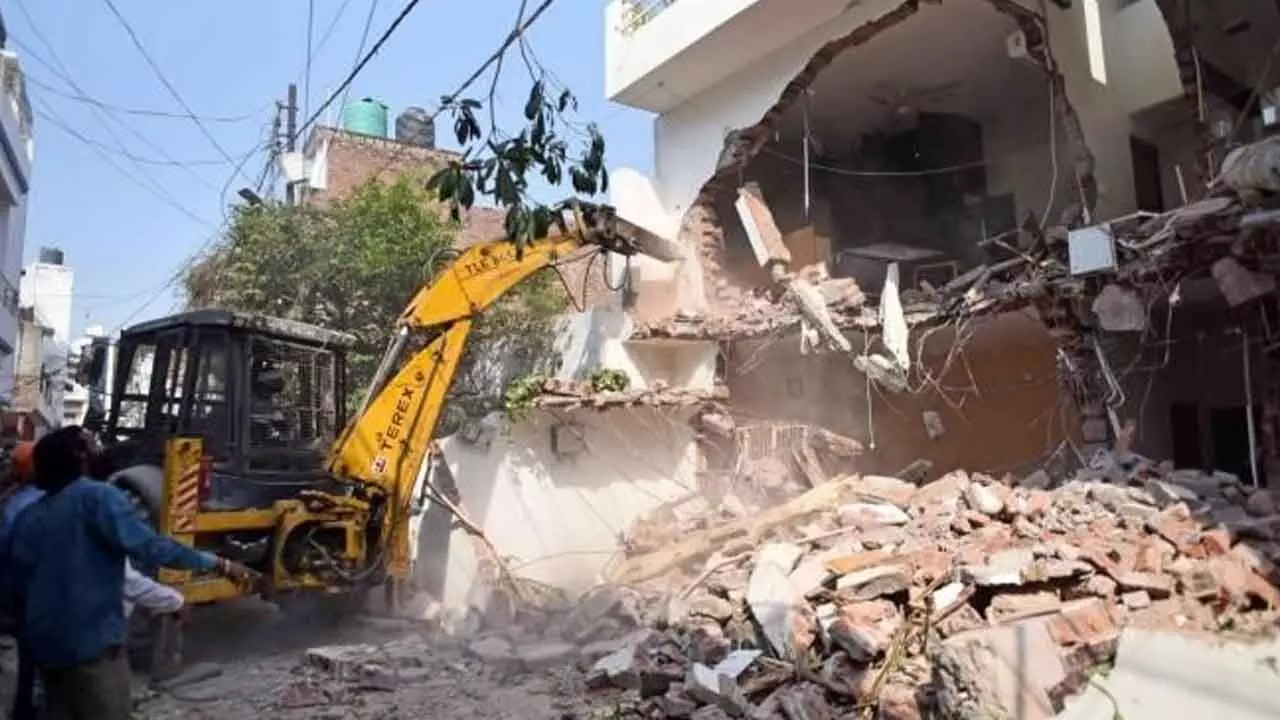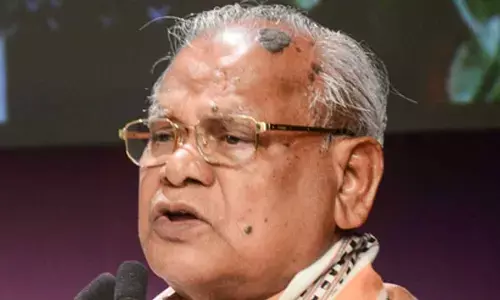SC halts bulldozer action by States

Executive can't become judge, rules SC; violation of the court's directions would lead to contempt proceedings, the bench warned. Officers should be told that if a demolition exercise is found to be in violation of norms, they will be held responsible for restitution of the demolished property, the court said. The cost for this, the court said, would be recovered from the officials' salary
New Delhi: The Executive cannot become a judge, decide that an accused is guilty and punish him by demolishing his properties as such an act would be transgressing its limits, the Supreme Court said on Wednesday.
The apex court also observed it will be "totally unconstitutional" for more than one reason if a citizen's house is demolished merely because he is an accused or a convict, that too without following the due process as prescribed by law.
A bench of Justices B R Gavai and K V Viswanathan made these observations while delivering its judgement which laid down pan-India guidelines on demolition of properties.
It said the Executive cannot declare a person guilty, as this process is the fundamental aspect of the judicial review. "Only on the basis of the accusations, if the executive demolishes the property/properties of such an accused person without following the due process of law, it would strike at the basic principle of rule of law and is not permissible," the bench said in its 95-page verdict.
Violation of the court's directions would lead to contempt proceedings, the bench warned. Officers should be told that if a demolition exercise is found to be in violation of norms, they will be held responsible for restitution of the demolished property, the court said. The cost for this, the court said, would be recovered from the officials' salary.
"The executive cannot become a judge and decide that a person accused is guilty and, therefore, punish him by demolishing his residential/commercial property/properties. Such an act of the executive would be transgressing its limits," it said.
The bench said the "chilling sight" of a bulldozer demolishing a building, when authorities have failed to follow the basic principles of natural justice and have acted without adhering to the principle of due process, reminds one of a lawless state of affairs, where "might was right". It said the constitutional ethos and values would not permit any such abuse of power and such misadventures cannot be tolerated by the court of law.
The court said accountability must be fixed on public officials who take law into their hands and act in a high-handed manner. "State and its officials can't take arbitrary and excessive measures. If any officer of the State has abused his power or acted in total arbitrary or malafide manner, he cannot be spared," it added.
Justice Gavai pointed that when a particular structure is chosen for demolition suddenly and similar other properties are not touched, then the presumption could be that the real motive was not razing the illegal structure, but "penalising without trial".
"For an average citizen, construction of a house is the culmination of years of hard work, dreams and aspirations. House embodies collective hope of security and future. If this is taken away, authorities must satisfy it is the only way," the bench said.
Opposition parties in Uttar Pradesh hoped that with this verdict, the "bulldozer terror" and "jungle raj" in the state would end. Samajwadi Party chief Akhilesh Yadav said the Supreme Court has "parked the bulldozer in the garage forever."
Bahujan Samaj Party chief Mayawati took to X to welcome the verdict and said, "After today's decision of the Hon'ble Supreme Court regarding demolitions and the related strict guidelines, it should be expected that UP and other state governments will manage public interest and welfare properly and the terror of bulldozer will definitely end now." Uttar Pradesh Congress chief Ajay Rai said the verdict would end the "jungle raj" in the state.
Congress leader and Supreme Court lawyer Vivek Tankha welcomed the verdict.








